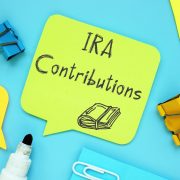Using a Self-Directed IRA to Save For Retirement When You Own a Successful Business
A lot of our most successful Self-Directed IRA clients are in the same boat: They’ve been quite successful running their own businesses, investing in real estate, dealing in precious metals, or in farming and ranching, over the years. They know their own business very well, but they aren’t big on mutual funds or bank products.
Even if they were, many of them are simply not satisfied with the returns usually available using mutual funds, diversified stock or bond portfolios, annuities, CDs and other options usually found in retirement products.
Tom, one of our clients in Georgia, who owns a successful roofing company, asked us, “why would I commit money to some mutual fund guy and hope he can make 10 percent in a good year when I can take the same money and buy another truck and hire another crew and make five times that amount – and with less risk? Or buy a rental property, use other peoples’ money, and get a 40-percent cash on cash return? Why would I want a mutual fund? It’s madness!”
While we’re not down on mutual funds, Tom has a point: He doesn’t know how to pick funds. But he knows a lot about roofing and construction, and he knows a lot about real estate.
Is there a retirement option for people like Tom? Absolutely: The Self-Directed IRA.
IRAs are simply a type of account that allows you to defer taxes on income and capital gains. While most vendors who sell IRAs are investment companies and therefore focus on mutual funds, CDs, annuities, stocks, bonds and the like, there’s nothing about the IRA that limits you to those particular types of investments. The only things you can’t own in an IRA are life insurance, art and collectibles, jewelry and gems, alcoholic beverages like wines, and certain forms of precious metals of uncertain or insufficient purity.
This opens the door wide open to all kinds of investments – including a roofing and construction company, investment real estate, farms and ranches, partnerships, oil and gas opportunities, lending and private banking and much more.
Don’t expect your banker or mutual fund salesperson to know much about it. They are in the business of attracting assets for their company, not in helping you maximize your own business and investing expertise. They don’t get an expense ratio if you use your retirement money to buy an apartment building, for example.
But if you do – and you use your traditional IRA to own it, you still get the same tax benefits: Deferral of income taxes and deferral of capital gains taxes – although you if you use leverage – that is, you borrow money to make investments – you may have to pay unrelated debt-financed income taxes on earnings attributable to other peoples’ money. Speak with your tax advisor for details.
My income is too high to qualify for deductible contributions to a traditional IRA
The most you can contribute to a traditional IRA or Roth IRA in any given year is $5,500. You can potentially make non-deductible contributions to a traditional IRA at any given income level. You don’t get the immediate tax deduction, but you still get to defer income and capital gains taxes until you take the money out as income as your retire.
You can also contribute to a Roth IRA, if your income is below certain income thresholds: $131,000 if you’re single and $183,000 if you’re married and file jointly for 2015. You have until April 15th, 2016 to make contributions for 2015. Limits are slightly higher for 2016, but the $5,500 cap remains the same. If you are over age 50 you may qualify for another $1,000 per year in ‘hardship contributions.’
I want to set aside much more than $5,500.
Have more money you want to shelter from taxes? As a business owner, you can set up a SEP IRA, or 401(k), and set aside as much as $59,000 per year, depending on your individual circumstances – all sheltered from the claims of creditors. And you can do all this and still focus your investing on real estate, a private business, gold and precious metals, farming and ranching, private lending or whatever you know best.
There are rules prohibiting self-dealing and doing IRA business directly with family members that apply, so make sure you know them before you make investment decisions within your Self-Directed IRA.
Starting a Self-Directed IRA is very easy. Just call American IRA, LLC at 866-7500-IRA(472), or visit us online at www.americanira.com. We have helped thousands of successful individuals just like you start up, fund and invest using a Self-Directed IRA, SEP IRA, 401(k) plan. Health savings accounts and Coverdell Education Savings Accounts are also available.


